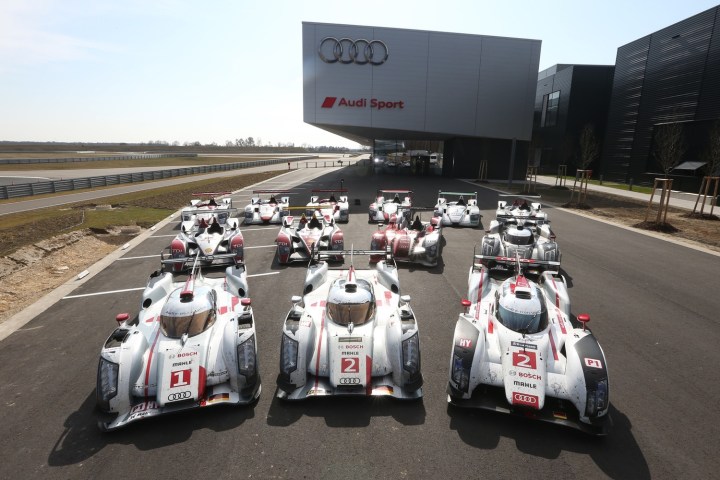
Audi is pulling out of Le Mans. As part of a major rethink of its motor sport program, Audi will terminate its participation in the FIA World Endurance Championship (WEC), which includes Le Mans, at the end of this season. Going forward, Audi plans to focus on Formula E, a race series for electric cars. Audi will continue racing in the German DTM series through 2017, and is still deciding whether to continue with the FIA World Rallycross Championship.
“As our production cars are becoming increasingly electric, our motor sport cars, as Audi’s technological spearheads, have to be even more so,” Audi boss Rupert Stadler told the 300 employees of the carmaker’s racing department on Wednesday. Audi plans to launch its e-tron electric SUV in 2018, and parent Volkswagen hopes to put one million electric cars on the road by 2025.
Read more: Mercedes clinches third straight F1 constructors’ title
Audi is already allied with the ABT Schaeffler Formula E team, and previously announced plans to increase its involvement beginning with the current season, which kicked off earlier this month in Hong Kong. It will provide financial and technical support to the team, and will display its branding more prominently on cars. This is a prelude to what Audi calls a “full factory commitment” to Formula E in coming seasons.
The decision to leave Le Mans isn’t entirely surprising given the current state of Audi’s endurance racing program. The carmaker lost to fellow VW Group brand Porsche in 2016 and 2015. In the wake of the Volkswagen diesel scandal, Audi’s diesel hybrid race cars are also less appealing from a marketing standpoint, and the extra weight of diesel engines puts them at a competitive disadvantage under the current rules. A very expensive redesign would likely be required to address these issues.
Still, there is no denying that Audi has one of the most impressive Le Mans records of any manufacturer. After 18 years of racing, its 13 victories put it behind only Porsche (which has 18). Audi was also the first manufacturer to win with a diesel engine (in 2006) and with a hybrid powertrain (in 2012). All good things must come to an end, though, leaving the question of which automaker will step up to fill Audi’s tire tracks.


